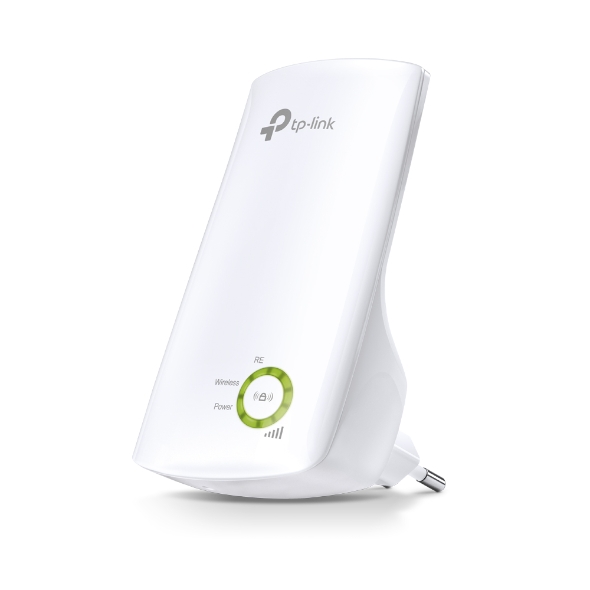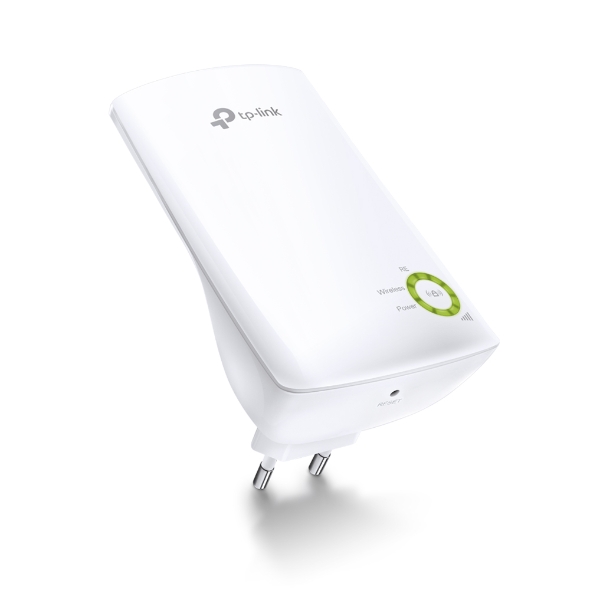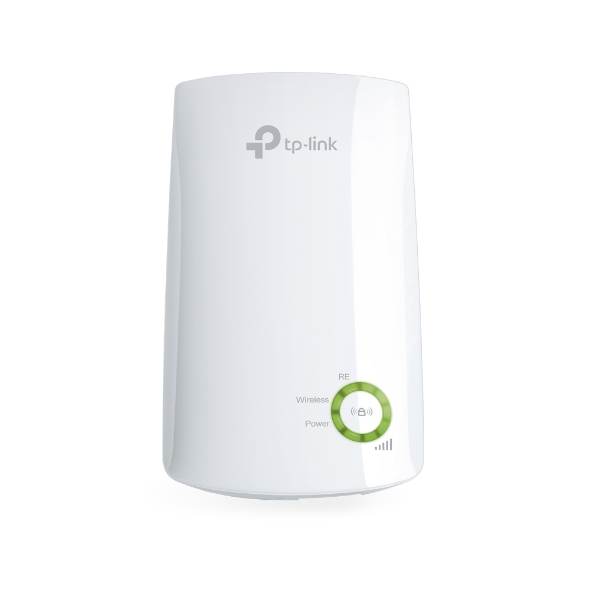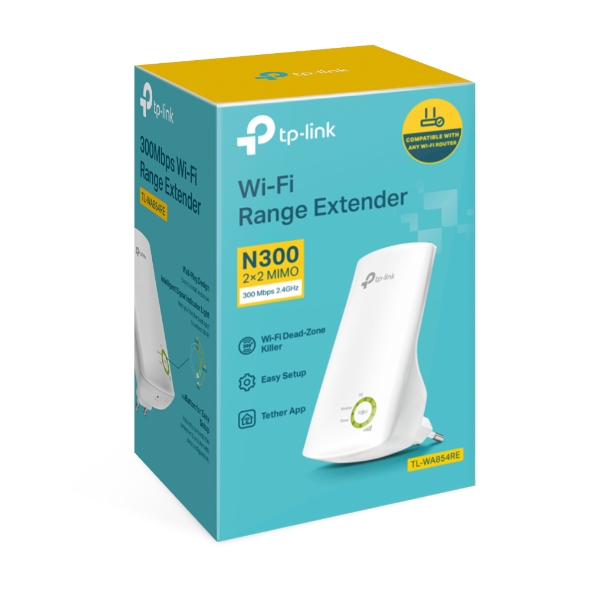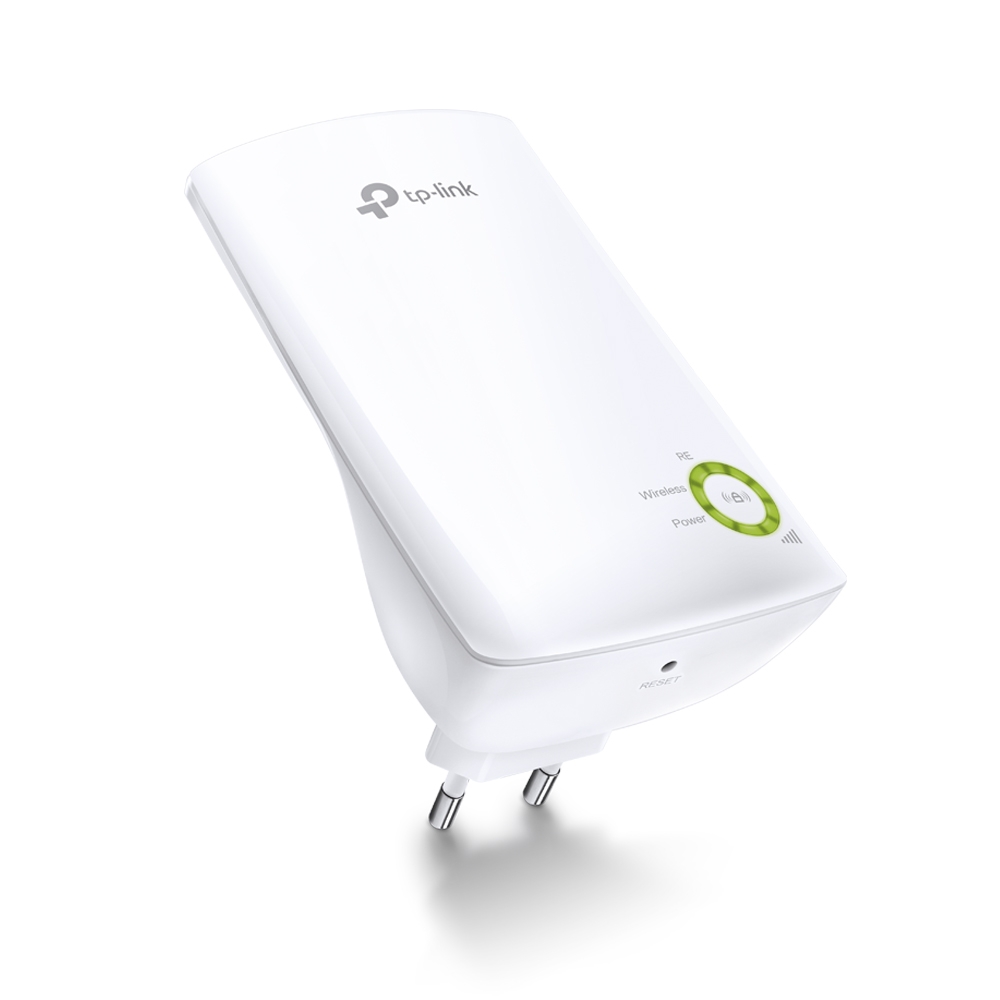TL-WA854RE
300Mbps Wi-Fi Range Extender
- Range Extender mode boosts wireless signal to previously unreachable or hard-to-wire areas flawlessly
- Miniature size and wall-mounted design make it easy to deploy and move flexibly
- Easily expand wireless coverage at a push of Range Extender button
- Tether App allows easy access and management using any mobile device
- LED Control function includes a Night Mode for peaceful sleep
| HARDWARE FEATURES | |
|---|---|
| Ports | - |
| Button | WPS Button, Reset Button |
| Input Power | 100-240V~50/60Hz |
| Power Consumption | 3.3W |
| Dimensions ( W x D x H ) | 65.8 × 75.2 × 110mm |
| Antenna | 2 Internal Antennas |
| WIRELESS FEATURES | |
|---|---|
| Wireless Standards | IEEE 802.11n, IEEE 802.11g, IEEE 802.11b |
| Frequency | 2.4GHz |
| Signal Rate | 11n: Up to 300Mbps (dynamic)11g: Up to 54Mbps (dynamic)11b: Up to 11Mbps (dynamic) |
| Working Modes | Range Extender |
| Reception Sensitivity | 2.4GHz:11g 54Mbps: -80dBm, 11n HT20 MCS7: -79dBm11n HT40 MCS7: -76dBm |
| Wireless Functions | Enable/Disable Wireless RadioAccess ControlLED ControlPower ScheduleWi-Fi Coverage |
| Wireless Security | 64/128-bit WEP, WPA/WPA2-PSKencryptions |
| Transmission Power | CE: <15dBm |
| OTHERS | |
|---|---|
| Certification | CE, RoHS |
| Package Contents | 300Mbps Wi-Fi Range Extender TL-WA854REQuick Installation Guide |
| System Requirements | Microsoft Windows 98SE, NT, 2000, XP, Vista™ orWindows 7, 8, 8.1, 10, MAC OS, NetWare, UNIX or LinuxInternet Explorer 11, Firefox 12.0, Chrome 20.0, Safari4.0, or other Java-enabled browser |
| Environment | Operating Temperature: 0℃~40℃ (32℉ ~104℉)Storage Temperature: -40℃~70℃ (-40℉ ~158℉)Operating Humidity: 10%~90% non-condensingStorage Humidity: 5%~90% non-condensing |
† Maximum wireless signal rates are the physical rates derived from IEEE Standard 802.11 specifications. Range, coverage, and the maximum number of connected devices are based on test results under normal usage conditions. Actual wireless data throughput, wireless coverage, and number of connected devices are not guaranteed and will vary as a result of 1) environmental factors, including building materials, physical objects, and obstacles, 2) network conditions, including local interference, volume and density of traffic, product location, network complexity, and network overhead, and 3) client limitations, including rated performance, location, connection quality, and client condition.
